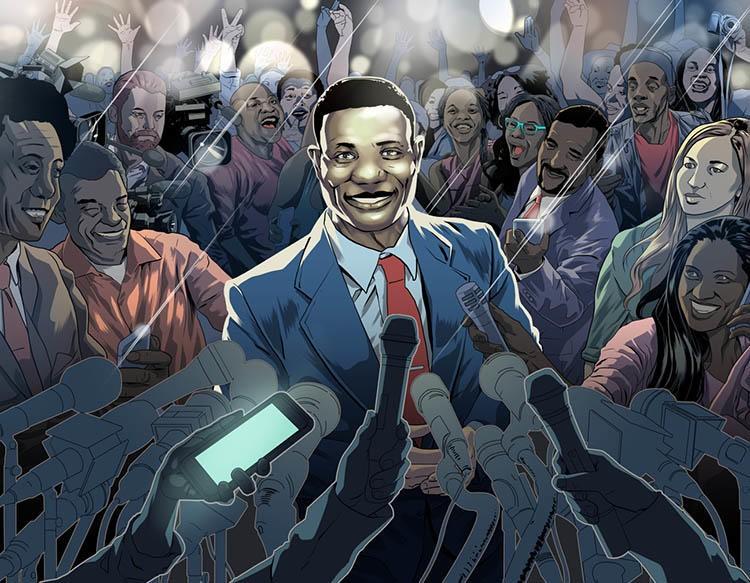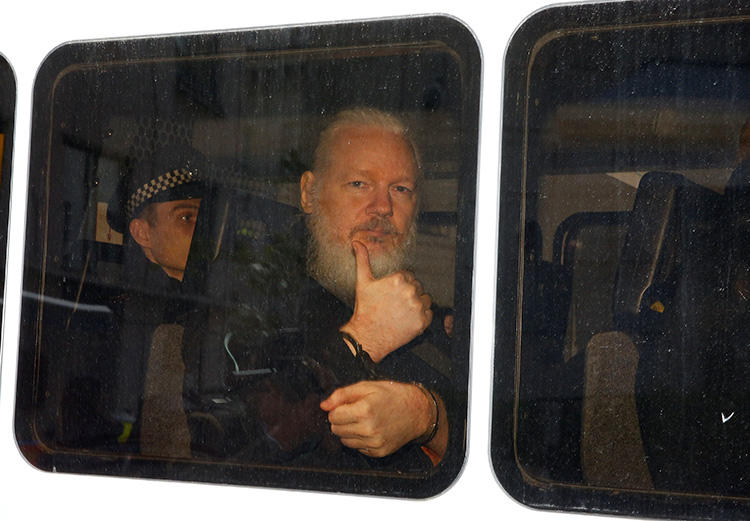The Torch is a weekly newsletter from the Committee to Protect Journalists that brings you the latest press freedom and journalist safety news from around the world. Subscribe here.
CPJ expressed concern about the potential press freedom implications of the U.S. prosecution of WikiLeaks founder Julian Assange. UK authorities arrested Assange April 11 at the Ecuadoran Embassy as part of an extradition agreement with the U.S., according to a statement by the U.S. Department of Justice. The statement said Assange faces a single count of conspiracy to commit computer intrusion relating to his interactions with former U.S. Army intelligence analyst Chelsea Manning, who was convicted under the Espionage Act for leaking classified information to WikiLeaks.
In Saudi Arabia, authorities detained journalists Thumar al-Marzouqi, Bader al-Ibrahim, Mohammed al-Sadiq, and Abdullah al-Duhailan. The journalists are being held in an undisclosed location and no charges against them have been announced. They were among at least 12 activists and writers detained by Saudi authorities on April 4.
Global press freedom updates
- Offices of independent Belarusian TV station Belsat raided in slander case
- CPJ joins calls for immediate and unconditional release of Mozambican radio journalist Amade Abubacar
- What we need to know about CBP’s searches of journalists at San Diego
- CPJ welcomes Sacramento police commitments to new journalist protection protocols
- Comoros authorities detain journalist, censor newspapers amid political crisis
- Read the latest Turkey Crackdown Chronicle, CPJ’s weekly round-up of press freedom violations in the country
- At least 10 Palestinian journalists injured by Israeli soldiers while covering Gaza protests since late March
- Uncertainty and risk for journalists stranded at Venezuelan border
- Nazarbayev’s long rule leaves toxic legacy for Kazakhstan’s media
- Proposed media regulator provokes strong criticism in Pakistan
- Morocco hands local journalists suspended prison sentences, expels Dutch journalist
- Italian journalist assaulted, robbed while reporting in park
- Journalist Luis Carlos Díaz released from detention, banned from leaving Venezuela
- Treason trial of Russian state media journalist begins in Ukraine
- CPJ welcomes convictions in murder of Serbian journalist Slavko Ćuruvija
Spotlight

Do you have an Amazon Alexa-enabled device? Enable CPJ's flash briefing skill to stay up to date with the latest press freedom news from around the world.
